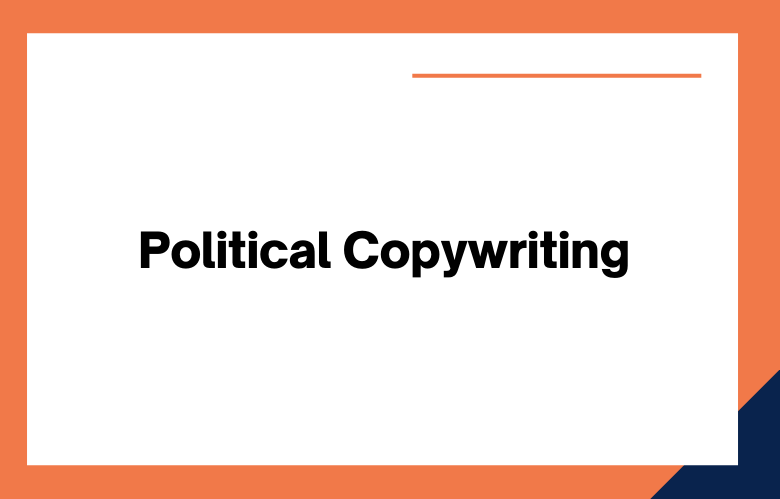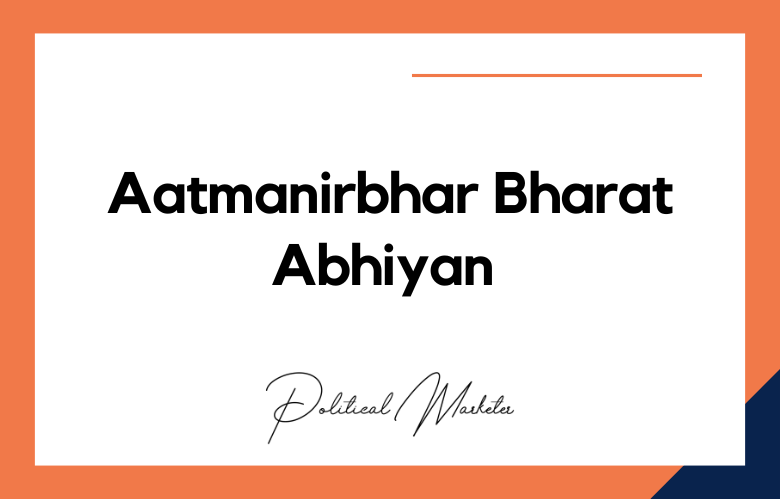Copywriting is an essential tool for any political campaign. Using the correct language can persuasively communicate your message to voters and boost your chances of winning. We’ll give you some tips on using language effectively in your political campaigns.
Writers have long been using language to persuade their readers. When it comes to politics, this is extremely important. To win over voters, you need to know how to use language. Here are some tips on political copywriting:
- Use simple language. Voters are more likely to be convinced if you keep your words simple and easy to understand.
- Be persuasive. Insert solid adjectives and verbs to make your points.
- Appeal to emotions. People vote with their hearts and heads, so appeal to their feelings in your writing.
- Be concise. Get into the point and don’t waste time or words.
Political copywriting is an essential part of any political campaign. Using the right language can boost your campaign and connect with voters. This blog post will give you some tips on using language effectively in your political campaigns.
What is a Political Copywriting?
Political copywriting is the art of persuasion. It’s what you use to sell products, services, or ideas. And in the arena of politics, it’s persuading people to vote for a candidate or support a policy. Political copywriters craft messages that convince people to take action.
It’s a type of writing that persuade people to vote for a particular candidate or political party. They also often try to convince people to support specific policies.
It’s a unique form of political copywriting that helps politicians communicate with the public. Political copywriters understand the issues that matter to voters and help their clients craft messages that resonate with them. They also help create campaign materials, such as speeches, ads, and press releases. By using their skills, political copywriters can help make a difference.
How to Use Language to Boost Political Campaign
To Boost Political Campaigns, Language Can Be Used in a Few Ways
One way to boost a political campaign is by using persuasive language. This can be done by creating slogans that stir emotion or tap into what the voters already feel.
Another way to use language to boost a campaign is by including key buzzwords that will grab attention. This could be anything from “hope” to “change” to “progress.” slogans and buzzwords are just two of the ways that language can be used To Boost a Political Campaign.
Language can be used to manipulative effect to achieve a goal. This is how political campaigns make use of language to gain support. Using simple phrases and words that resonate with people, campaigns can tap into emotions and entice voters.
Choose your words carefully. Your words can make a big difference in how people react to your message.
Think about the tone of your message. If you want to encounter as trustworthy and credible, use a respectful, professional manner. If you’re going to energize and excite people, use more dynamic language.
Use simple, easy-to-understand language. People are more likely to pay attention and remember your message if it’s stated plainly and clearly.
Tell stories. Stories are a long way off from connecting with people.
Language can be a powerful tool for boosting a political campaign. Here are a few tips for using language effectively in a campaign:
Choose your words carefully.
Focus on positive language. Positive words can help create a positive impression of your campaign and make people more likely to support you.
Frame your message in a way that resounds with voters. Think about what voters care about and how you can frame your message in a way that appeals to them.
Use language to connect with voters. Find ways to connect with voters emotionally, and you’ll be more likely to win their support.
Political Copywriting Tips
- Make your message concise.
- Use strong and clear language to get your point across.
- Offer a realistic and achievable solution, not idealistic or utopian.
- Focus on what you believe in, not what you don’t like about the other candidate(s).
- Be clear and concise
- Use strong words to emphasize your point
- Stimulate emotion in the reader with statements that are controversial but not too extreme
- Avoid using jargon or buzzwords
- Use a conversational tone, but be careful not to sound too casual
- Avoid using jargon and acronyms
- Be specific and use clear language that is easy to understand
- Include concrete examples of what you’re talking about to make it easier for the reader to follow your point
- Keep your message straightforward
- Be careful not to be too partisan or biased in your writing
- Avoid using jargon or clichés that may confuse the reader
- Make sure you have a central theme for your copywriting campaign
- Keep your message clear and concise
- Focus on the benefits of the product or service, not the features
- Use a call to action at the end of every sentence that encourages people to take an action
- Write in active voice (i.e., “I want you to have this”) instead of passive voice (i.e., “this is wanted by me”)
- Use strong language that is bold and concise
- Avoid using clichés or jargon, but if you have to use them, make sure they are explained clearly in the context of the message.
- Maintain a consistent tone throughout the campaign
- Know your audience and their beliefs
- Write with conviction, not just facts
- Be concise- don’t use more words than you need to make a point
- Use emotional language that resonates with the reader’s values and shares a sense of urgency or fear
- Create a call to action that is specific, measurable, and time-bound
- Have an understanding of your audience’s concerns and what they are looking for in a candidate or policy
- Use words that will resonate with the reader: “freedom,” “success,” and “security.”
Conclusion
Now that you understand how to use language to your advantage in a political campaign, it’s time to put this knowledge into practice.
Contact us today to help with your next political campaign – we would be honored to assist you!
Political Copywriting Tips: How to Use Language to Boost Political Campaign – FAQs
What Is Political Copywriting?
Political copywriting is the strategic use of persuasive language to shape voter opinions, promote candidates, influence public discourse, and drive action through written content.
Why Is Copywriting Important In Political Campaigns?
Effective copywriting helps communicate values, simplify complex issues, build emotional connections, and drive voter engagement across channels.
How Do You Write A Compelling Political Headline?
A strong headline should be clear, emotionally charged, action-oriented, and aligned with the campaign’s core message.
What Tone Works Best In Political Copy?
The tone should reflect the campaign’s identity and audience, whether confident, empathetic, urgent, hopeful, or bold depending on context.
How Can Storytelling Enhance Political Copywriting?
Real-life stories add authenticity, humanize candidates, and make abstract policies more relatable and memorable for voters.
Should Political Copy Focus More On Emotions Or Facts?
A balanced mix of emotional appeal and factual credibility works best, depending on the message and the platform.
What Are The Most Effective Calls To Action In Political Writing?
Phrases like “Join Us,” “Donate Now,” “Vote Today,” or “Take Action” create urgency and encourage specific voter behavior.
How Can Political Copy Stay Persuasive Without Sounding Manipulative?
By being honest, clear, and focusing on shared values rather than fearmongering or exaggeration, copy can persuade ethically.
What Role Do Slogans Play In Political Copywriting?
Slogans capture the essence of a campaign in a few powerful words and serve as memorable rallying cries for supporters.
How Can You Tailor Political Copy For Different Platforms?
Adapt the length, tone, and format — shorter copy for social media, deeper arguments for email or print, and visual storytelling for video scripts.
What Mistakes Should Be Avoided In Political Copywriting?
Avoid vague language, overpromising, aggressive negativity, inconsistent tone, or ignoring the intended audience’s mindset.
How Do You Write For Undecided Or Swing Voters?
Use neutral, fact-based, and benefit-focused language that addresses their concerns and builds trust through empathy and logic.
What Copywriting Techniques Drive Campaign Donations?
Urgency, social proof, emotional triggers, impact framing, and donor recognition help increase conversions in fundraising content.
Can Humor Be Used In Political Copywriting?
Yes, but it must align with the brand, avoid mockery or divisiveness, and be used to disarm rather than alienate readers.
How Should Political Copy Address Controversial Topics?
With clarity, respect, and a firm stance that reflects campaign values, while acknowledging differing viewpoints when appropriate.
How Can Repetition Be Used Effectively In Political Messaging?
Repeating key phrases reinforces memory and message retention, especially in slogans, talking points, and call-to-action prompts.
What Is The Role Of Copy In Political Advertising?
Ad copy must grab attention quickly, deliver a sharp message, and guide the viewer to take a specific action within seconds.
How Can Copy Be Optimized For SEO In Political Content?
Use relevant keywords, structure content clearly, answer common voter questions, and include metadata that aligns with campaign themes.
How Do You Write Copy For Political Email Campaigns?
Keep subject lines strong, personalize the message, maintain a clear narrative, and end with a compelling call to action.
How Can Data And Analytics Improve Political Copywriting?
Data reveals what messages resonate, which headlines perform best, and how different voter segments respond, allowing for refined messaging.
One way to get in touch is by filling out our online form on this site or give us a call at
+91 9848321284. Let’s work together today!











